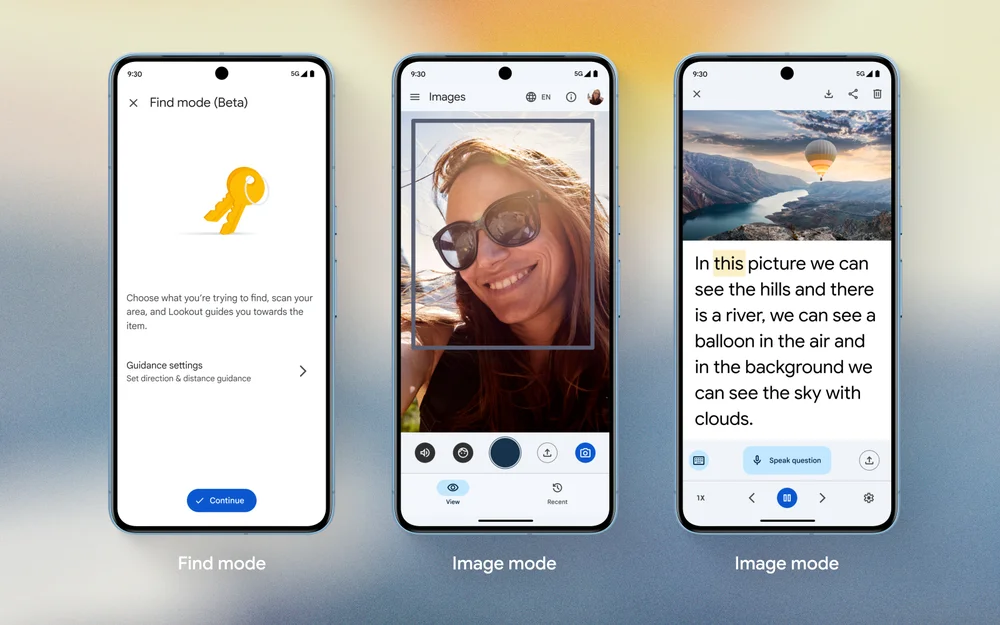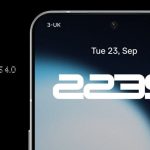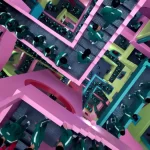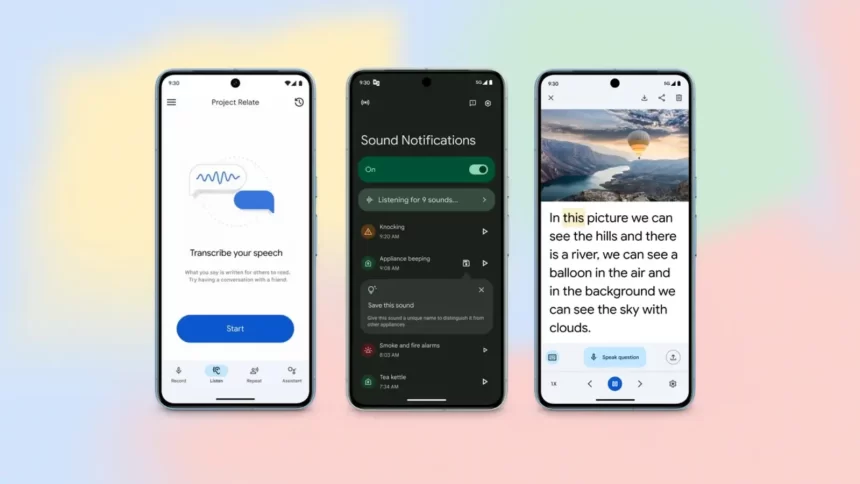Google recently announced a set of new accessibility features designed to improve the user experience for people with disabilities. These updates were rolled out in conjunction with Global Accessibility Awareness Day 2024 and span across several of Google’s popular products.
Lookout
- Find Mode (beta): This beta feature helps users with blindness or low vision locate specific objects around them. With Find Mode, users can choose from various categories such as bathrooms, tables or seating. Lookout will then use the phone’s camera to identify these objects and provide users with information on distance and direction.

- AI-generated Image Descriptions: Lookout can now generate descriptions for images captured directly within the app, in addition to those uploaded from photos.
- Look to Speak Text-Free Mode: Look to Speak allows users to select pre-written phrases for communication using their eyes. The new text-free mode expands on this functionality by enabling users to choose and personalize emojis, symbols, and photos to trigger spoken communication.
Maps
- Detailed Voice Guidance and Screen Reader for Lens: This feature provides users with information on nearby places and navigation guidance through voice and screen reader compatibility.
- Maps now shows wheelchair accessibility details for many places.
- Auracast Attribute: Business owners can now add an Auracast attribute to their profiles. This allows venues to broadcast enhanced audio directly to visitors with hearing aids.
Project Relate and Sound Notifications
- Project Relate Custom Cards: Users can now import phrases from other applications into Project Relate as custom cards. This feature aims to improve the accuracy of personalized speech recognition.
- Sound Notifications Redesign: The update incorporates user feedback to streamline the onboarding process and browsing of sound events. This will make it easier for users to save custom sounds for appliances.
These updates highlight Google’s commitment to accessibility and its ongoing collaboration with the disability community to improve user experience through continuous development based on user feedback.






